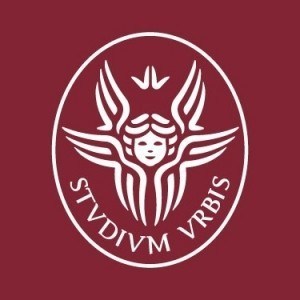Photos of university / #northwesternu
The Robotics program at Northwestern University offers a comprehensive and innovative education designed to prepare students for leadership roles in the rapidly evolving field of robotics and automation. Combining rigorous coursework, hands-on laboratory experiences, and cutting-edge research opportunities, the program equips students with a strong foundation in mechanical engineering, electrical engineering, computer science, and systems integration. Students will explore core topics such as robot kinematics and dynamics, sensors and perception, control systems, artificial intelligence, machine learning, and embedded systems. The curriculum emphasizes interdisciplinary learning, encouraging students to apply their knowledge to real-world challenges across industries such as manufacturing, healthcare, autonomous vehicles, and service robotics. Through collaborative projects, students gain practical experience in designing, building, and programming robotic systems in state-of-the-art laboratories supported by Northwestern's robust research infrastructure. The program also offers specialization options in areas like humanoid robotics, autonomous systems, and robotic sensing, allowing students to tailor their education to their interests and career goals. Faculty members are distinguished researchers and industry experts dedicated to advancing the field of robotics and mentoring students through research, internships, and industry partnerships. Graduates of the program are well-prepared for careers in academia, research, development, and engineering roles within leading technology firms, startups, government agencies, and healthcare organizations. The Northwestern Robotics program fosters innovation, critical thinking, and problem-solving skills essential for addressing complex challenges in automation and robotic applications. Students benefit from a vibrant academic community that promotes collaboration, entrepreneurial spirit, and interdisciplinary exploration, making Northwestern University a leading institution for robotics education and research.
REQUIRED COURSES (3)
- ME 333: Intro to Mechatronics
- ME 449: Robotic Manipulation
- ME 495: Embedded Systems in Robotics
PROJECT REQUIREMENTS
- Independent project (worth 1 course)
- Final project with a faculty advisor (worth 5 courses)
Requirements
- Bachelor's degree in robotics-related field (mechanical engineering, electrical engineering, biomedical engineering, computer science, etc.).
- Minimum of 3.0 overall grade point average on a 4.0 scale for all undergraduate work.
- The online application requires you to submit a scanned, unofficial copy of your transcript from each college or university that you have attended. Please make sure that the scanned transcripts are legible before uploading them. If you are offered a position in the MSR program and you decide to enroll, you will be required to submit one official copy of each transcript. Official transcripts should be sent directly from the issuing institution's registrar either mailed to the address below in sealed, unopened envelopes or emailed to msr@northwestern.edu as official electronic transcripts.
- We require three letters of recommendation that can attest to the quality of the applicant's previous work and likelihood of success in the program. The applicant must provide email contact information for each reference which will be used to contact the references with online submission instructions.
- GRE scores are desirable but not required; the majority of MSR applicants choose to submit GRE scores. Unofficial scores may be entered in the online application, and scanned copies of the scores may be uploaded. If scans are uploaded, MSR staff will contact ETS and verify your scores (no need to send official scores). If scans are not provided in the online application, official scores should be sent to Northwestern U MS in Robotics at institution code 7498.
- You must upload a currrent resume or CV in the online application.
- A short personal statement.
- All academic records from undergraduate institutions (post secondary/high school) must be translated to English by the issuing institution. If possible, they should provide equivalences between their grading system and a 4.0-scale system. Please do not upload foreign language transcripts unless English language transcripts are impossible to obtain. If you only have access to foreign language transcripts and accept an admissions offer from MSR, the official transcript submissions must be accompanied by an official English translation bearing the original ink signature and seal of the issuing university. Transcripts are submitted in the same fashion as described in the previous section.
- We require a minimum TOEFL score of 100 on the internet-based test and 600 on the paper-based test. Copies of your TOEFL scores may be uploaded to the online application; MSR staff will contact ETS for score verification (no need to send official scores). If scans are not provided, official scores should be submitted to Northwestern University MS in Robotics program at institution code 7617. If an applicant is unable to take the TOEFL, we will accept results from the IELTS exam; the minimum score is a 7.0.
Scholarships
- THE CROWN FAMILY INTERNSHIP
- CABELL FELLOWSHIP
- NATIONAL SCIENCE FOUNDATION GRADUATE RESEARCH FELLOWSHIP PROGRAM (GRFP)
- SCIENCE, MATHEMATICS AND RESEARCH FOR TRANSFORMATION (SMART) SCHOLARSHIP FOR SERVICE PROGRAM
The Robotics program at Northwestern University offers a comprehensive and interdisciplinary education designed to prepare students for advanced careers in robotics engineering, research, and industry. The program emphasizes the integration of mechanical, electrical, and computer engineering principles to develop innovative robotic systems capable of performing complex tasks across various environments. Students gain hands-on experience through laboratory projects, design challenges, and real-world applications, fostering skills in robotic design, control systems, artificial intelligence, machine learning, computer vision, perception, and autonomous systems.
The curriculum typically covers core topics such as kinematics, dynamics, control systems, embedded systems, sensor integration, and programming languages relevant to robotics, including Python, C++, and MATLAB. Specializations may include humanoid robotics, industrial automation, autonomous vehicles, drone technology, and assistive robotics, among others. The program often partners with industry leaders and research institutes, providing students with internship opportunities, collaborative projects, and exposure to cutting-edge developments in robotics technology.
Graduates of the program are equipped to pursue careers in robotics research and development, product design, systems integration, and management within sectors like manufacturing, healthcare, transportation, aerospace, and consumer electronics. The program also encourages interdisciplinary collaboration, fostering a community of students and faculty from engineering, computer science, and other relevant fields. Ultimately, Northwestern’s Robotics program aims to produce skilled professionals who can innovate and lead advancements in robotic systems, contributing to technological progress and societal benefit.








